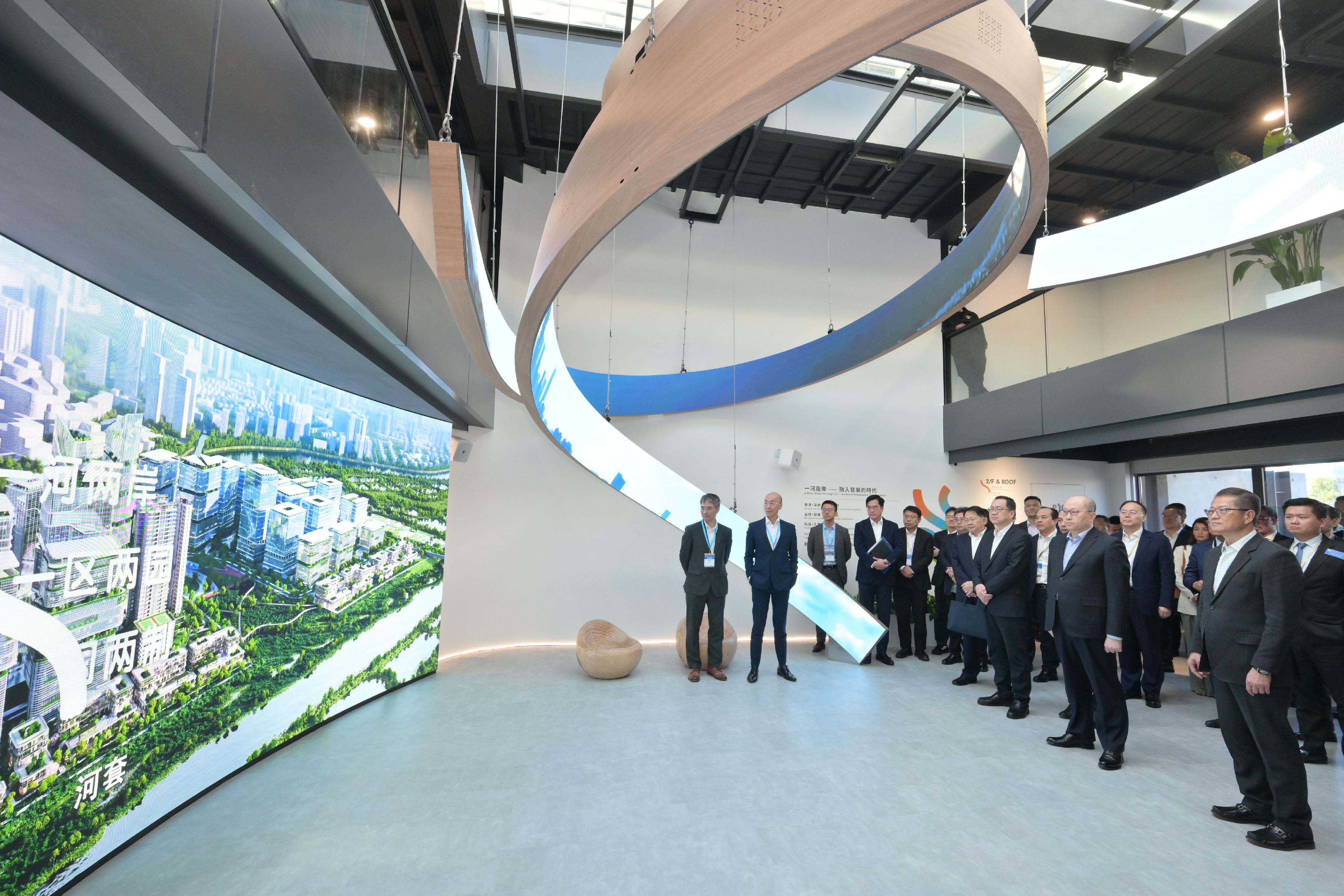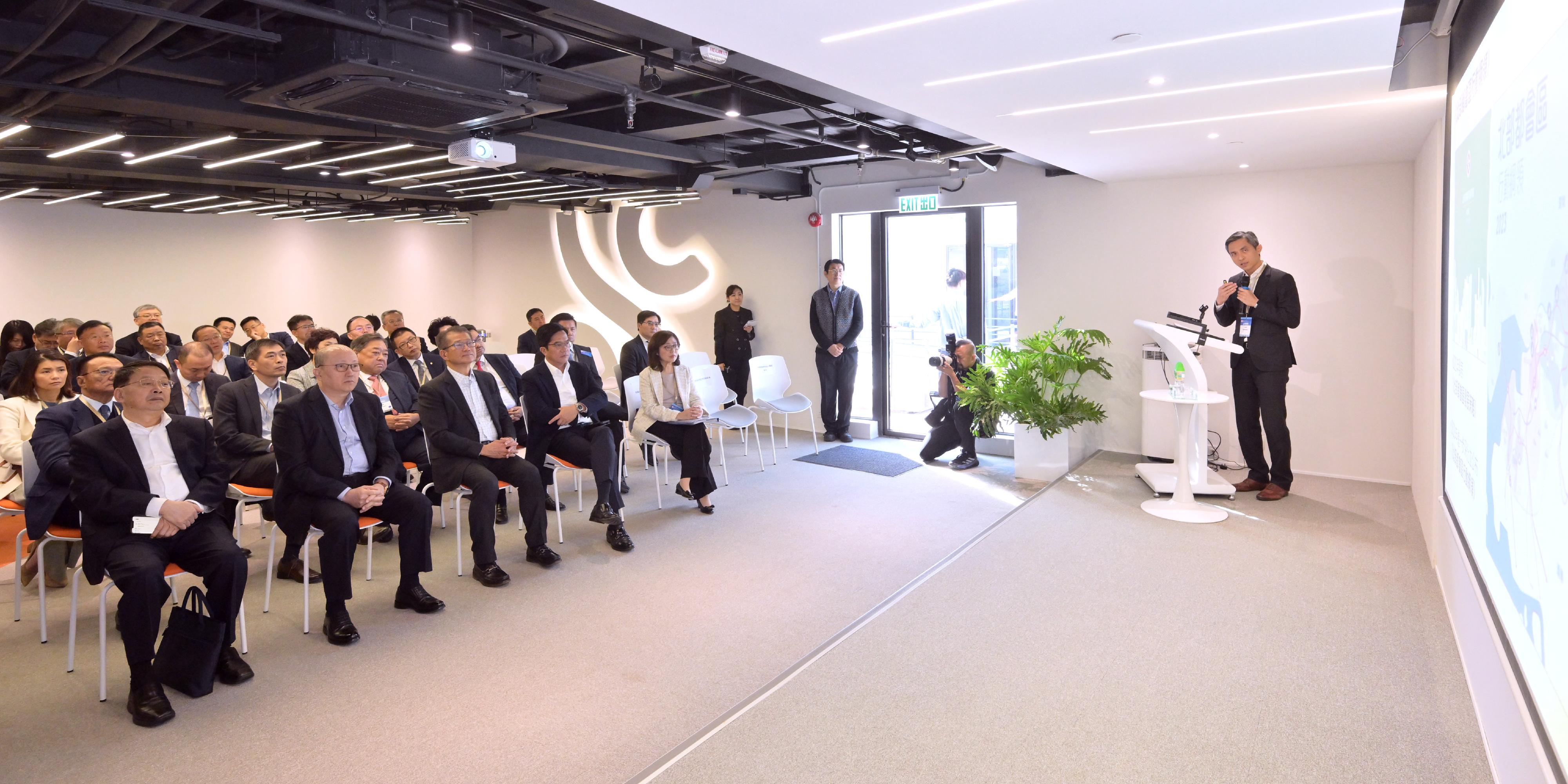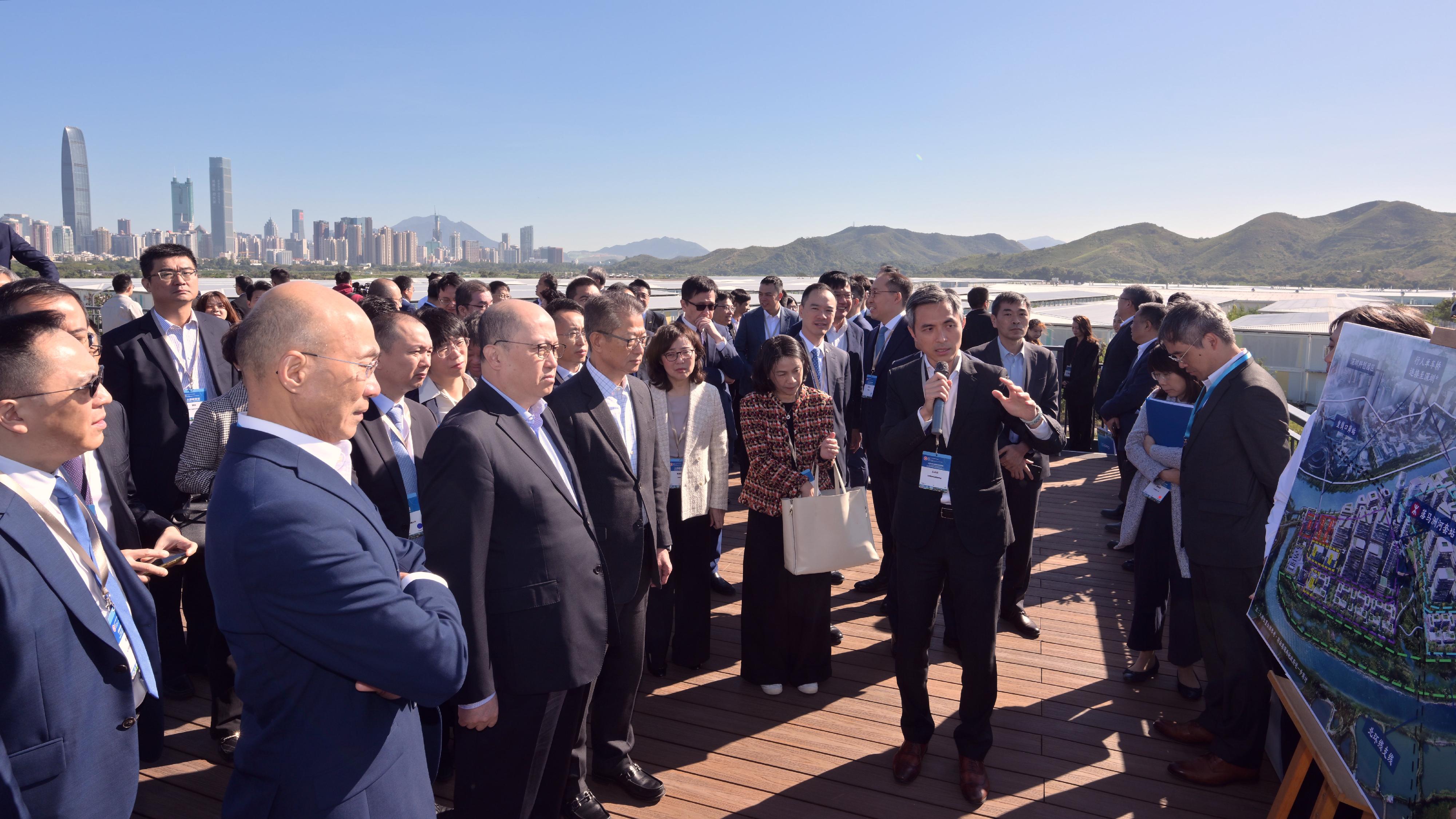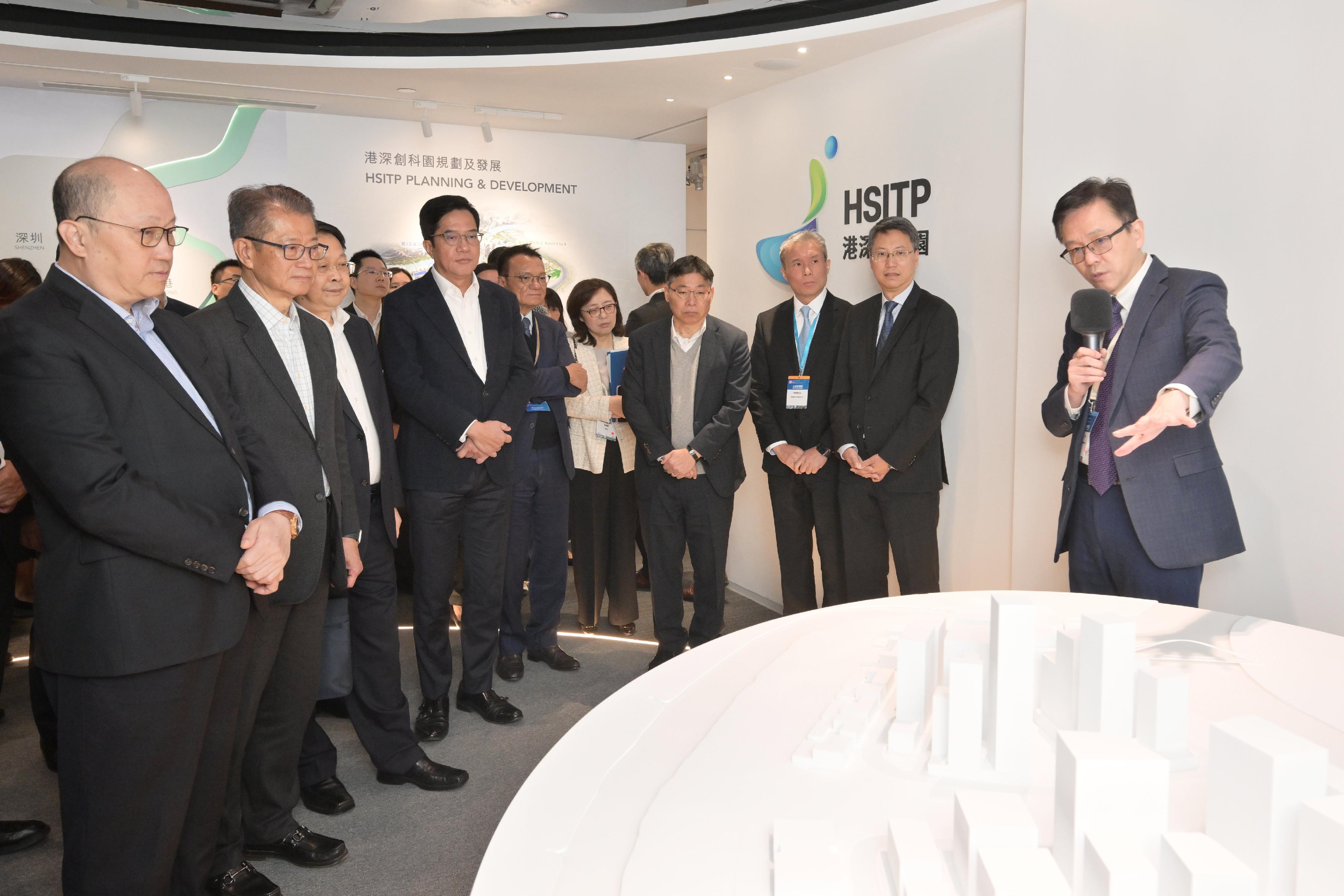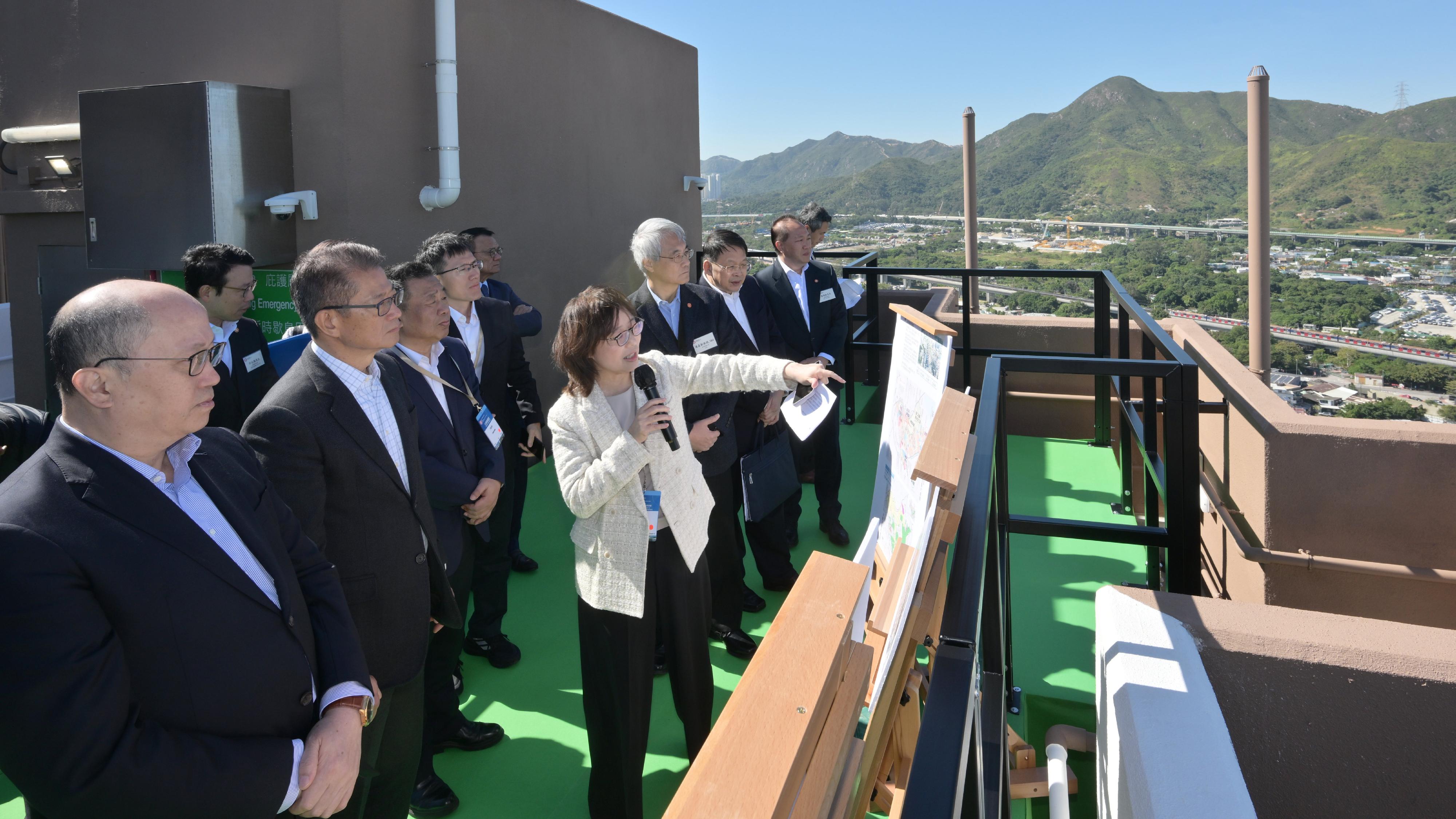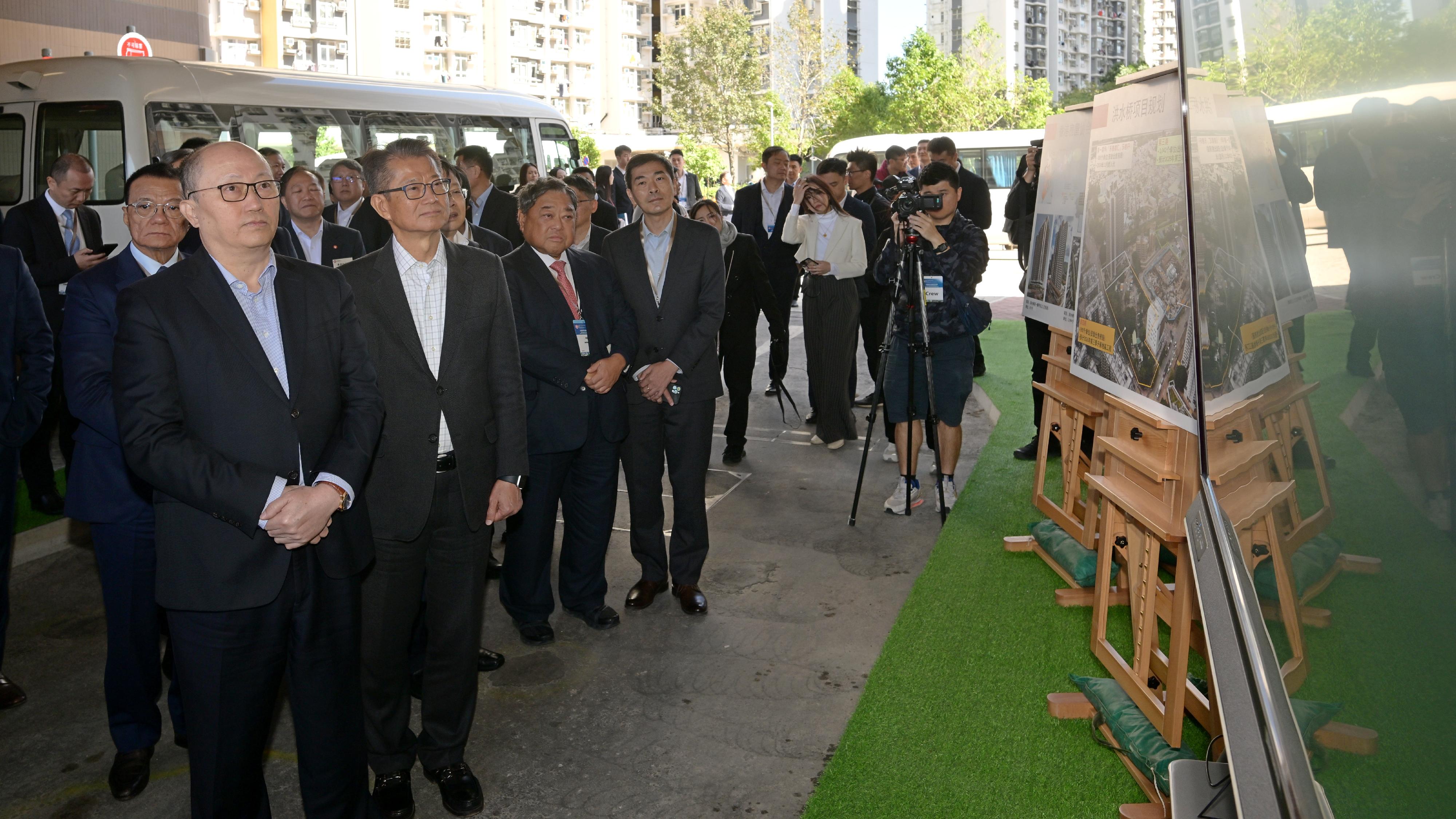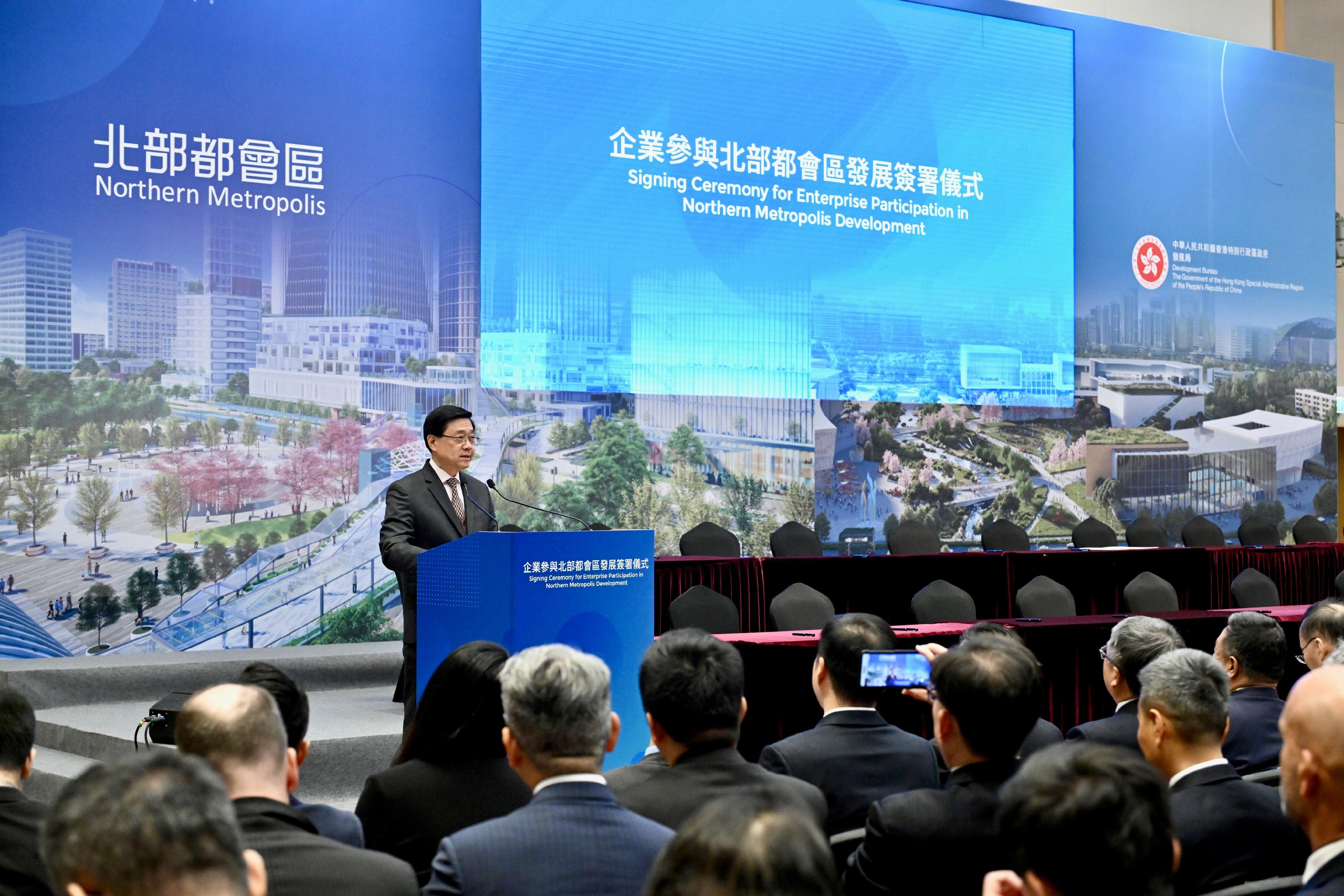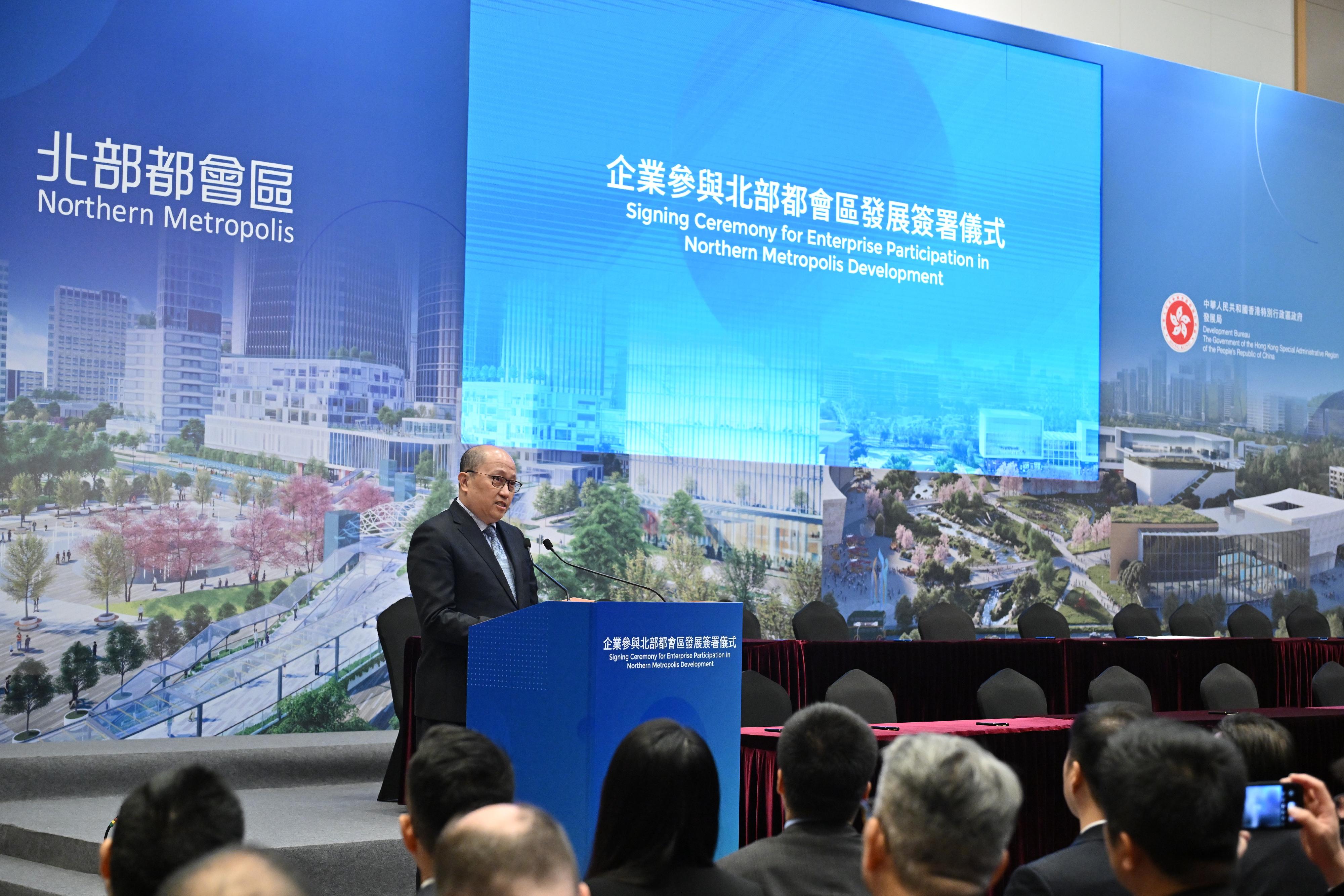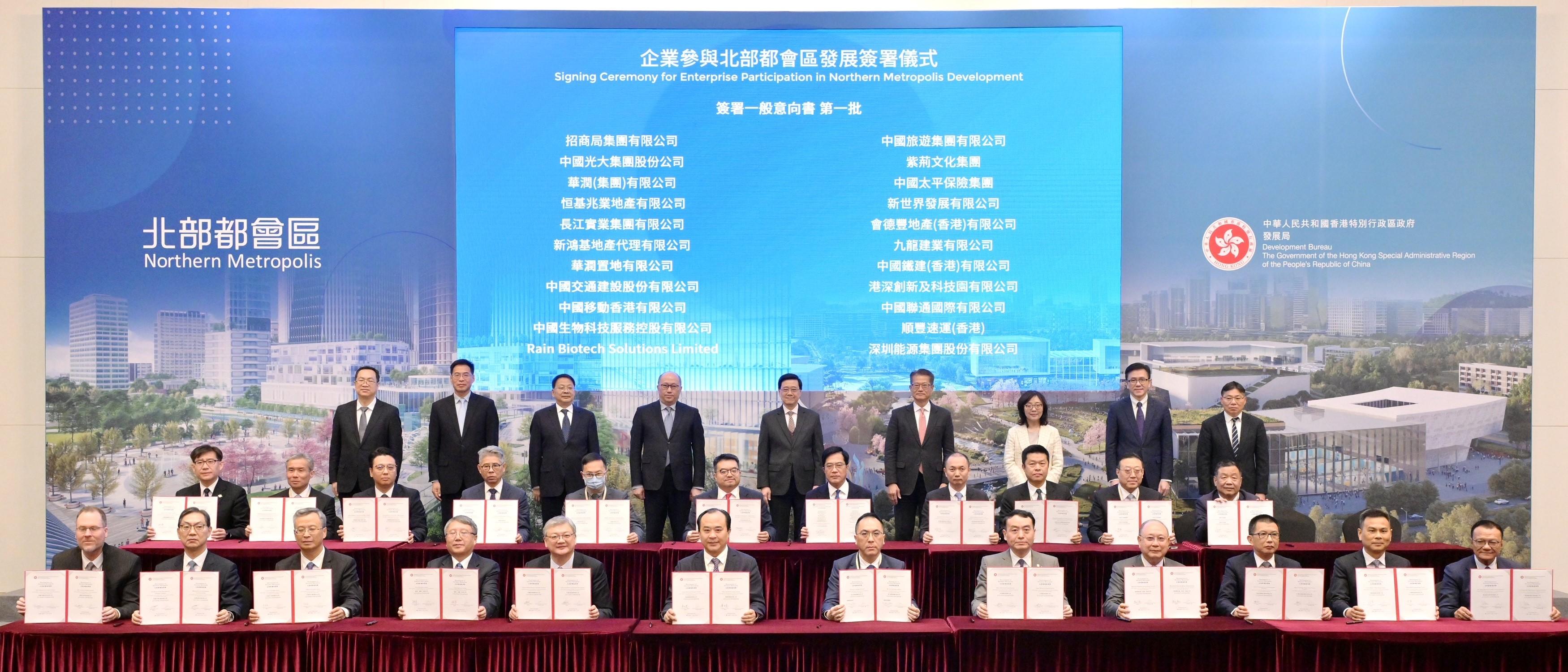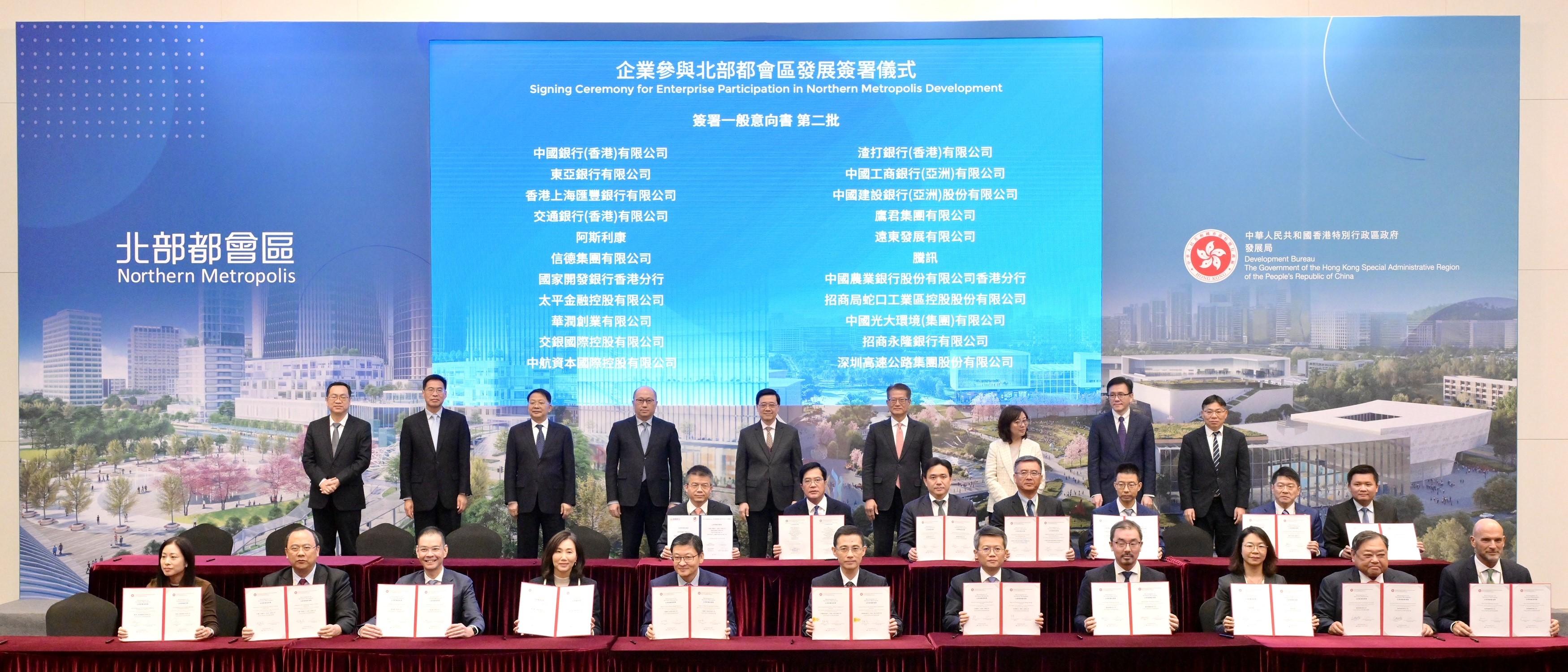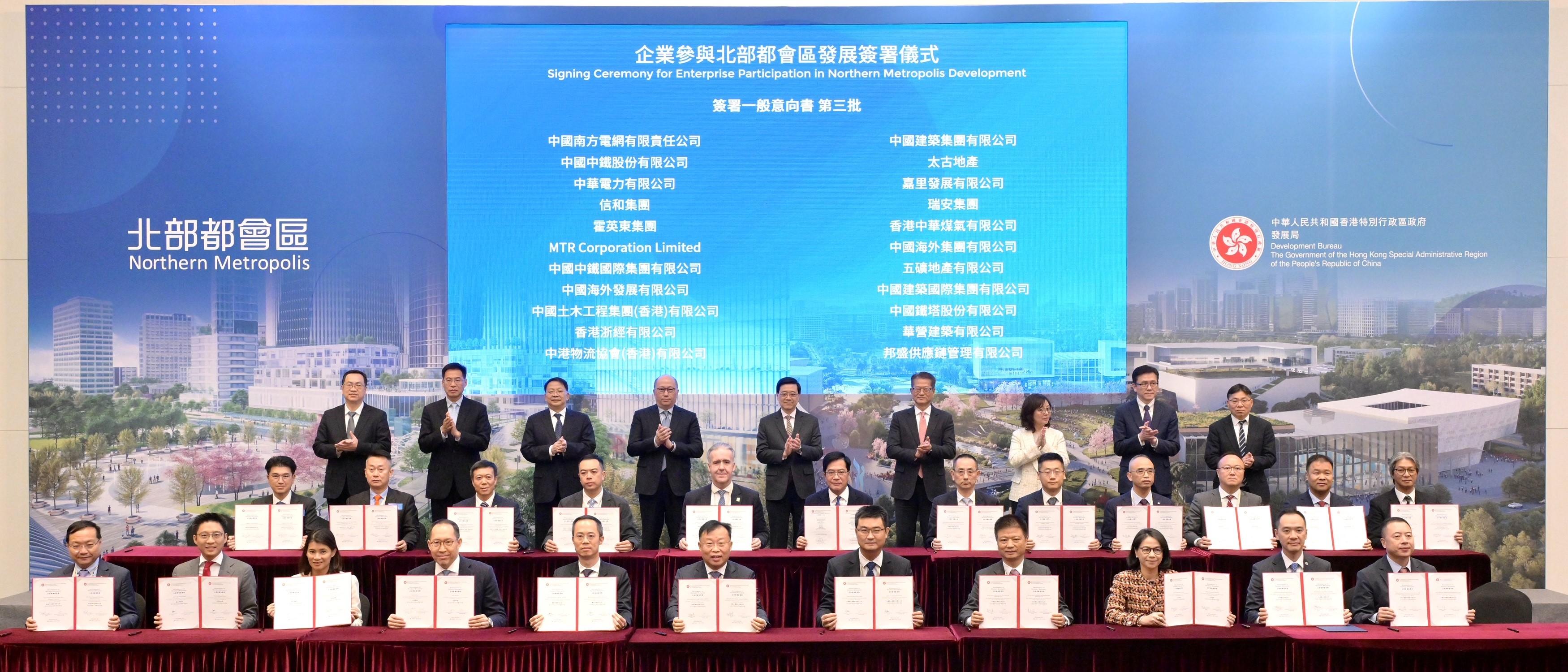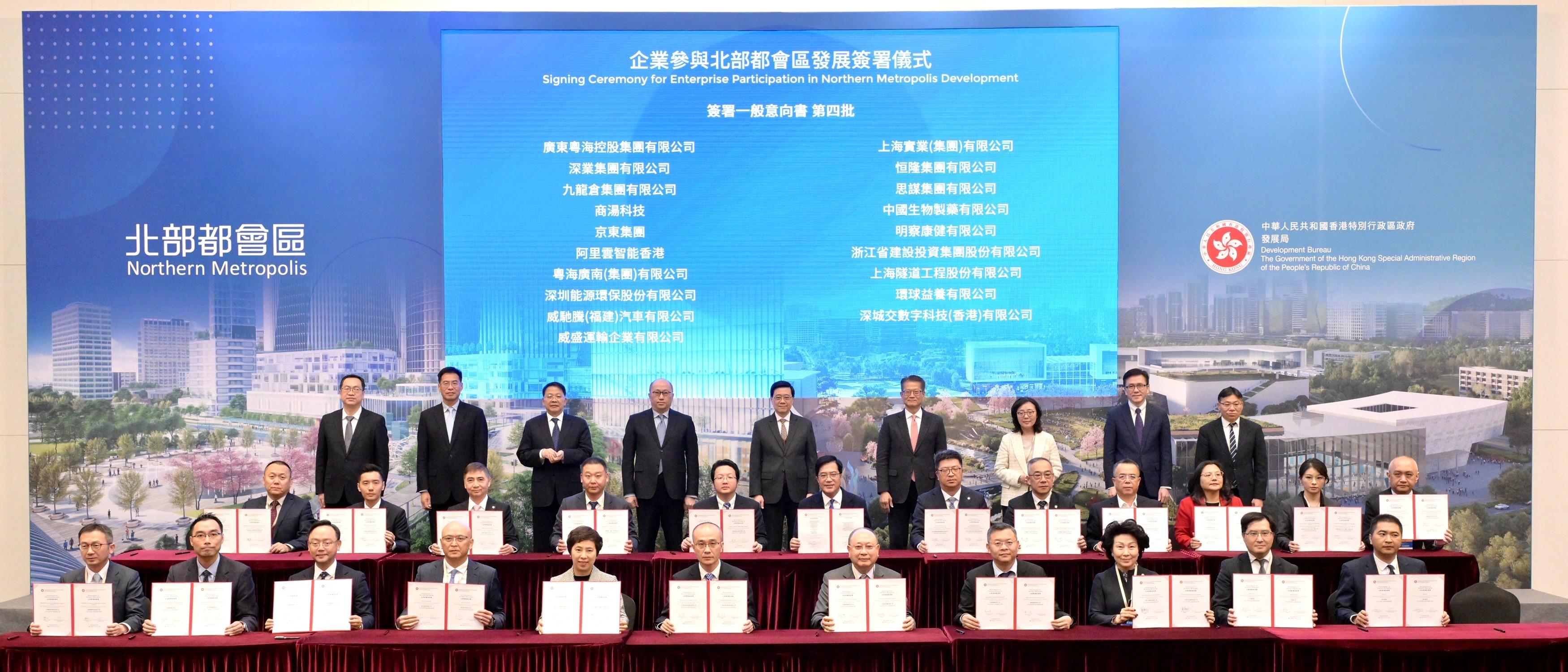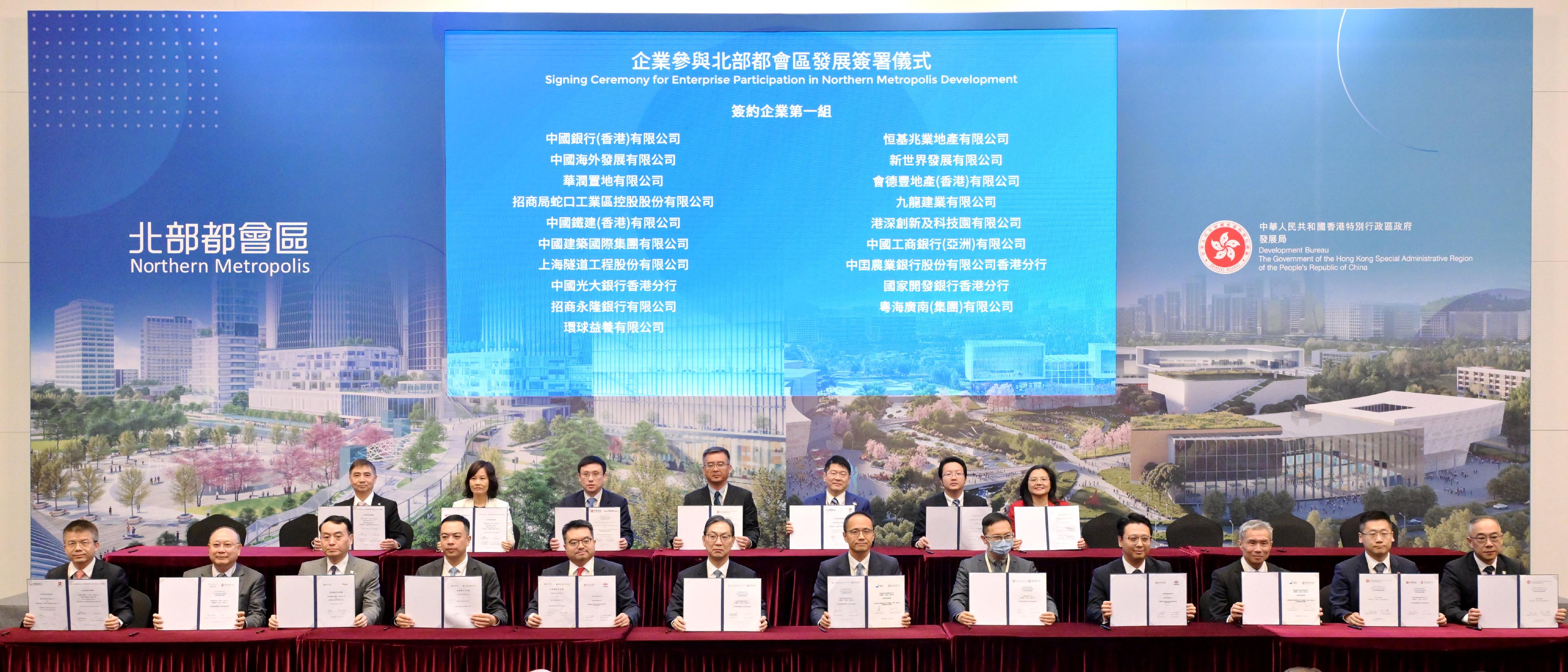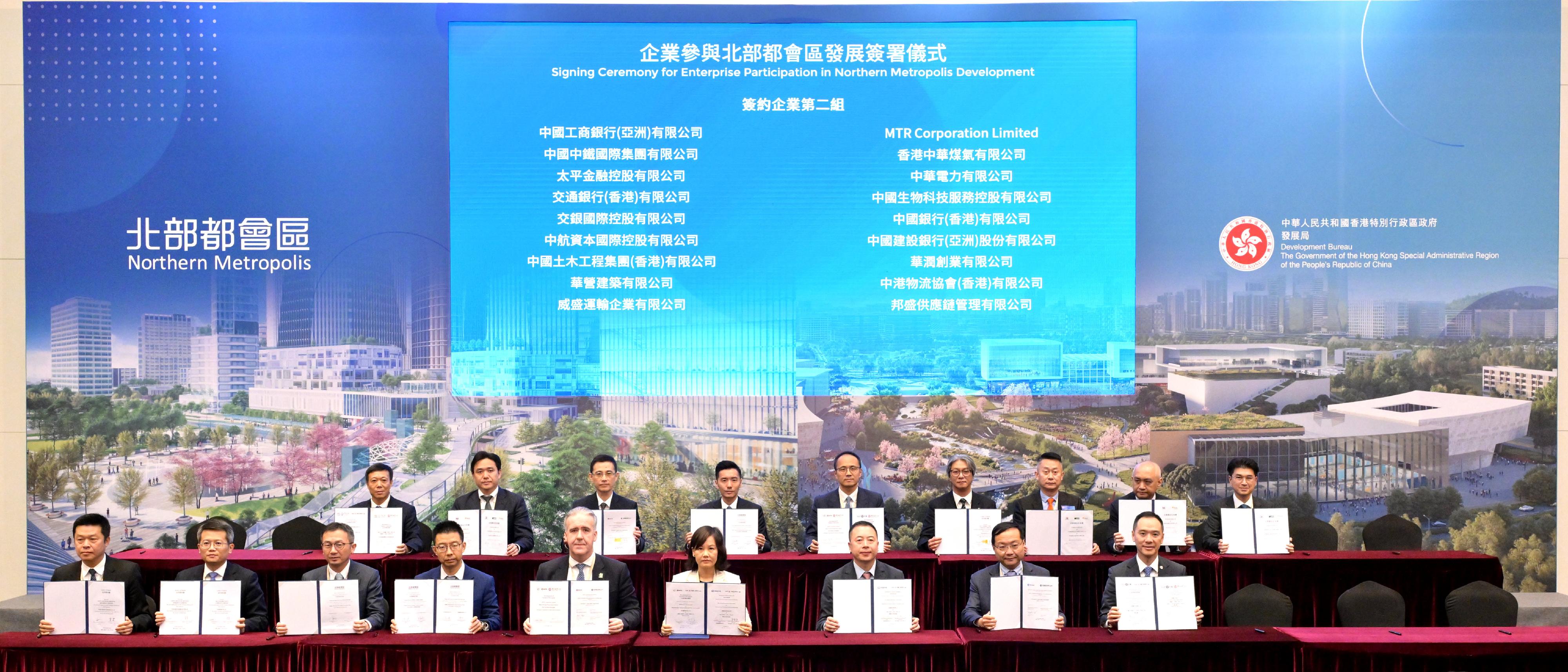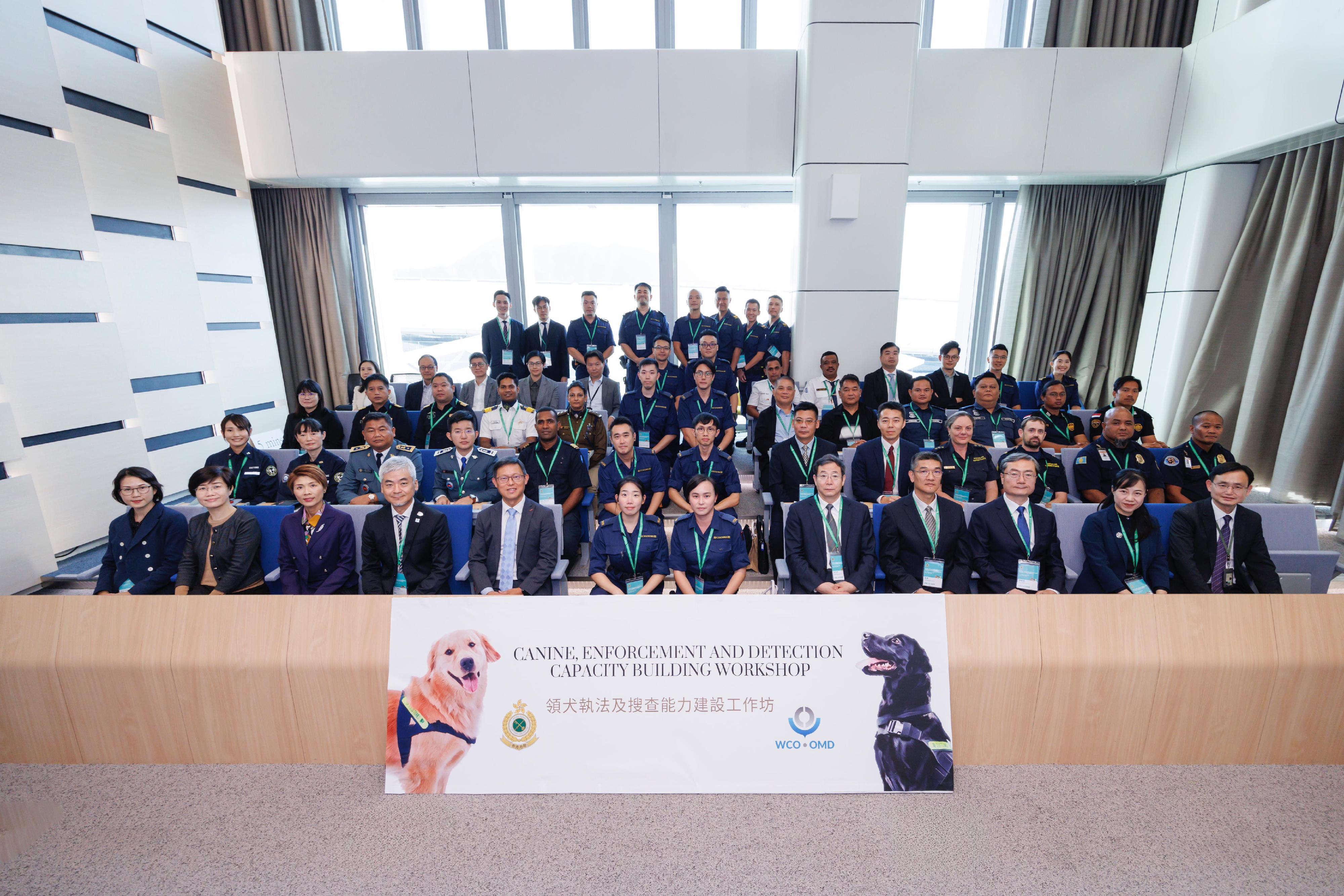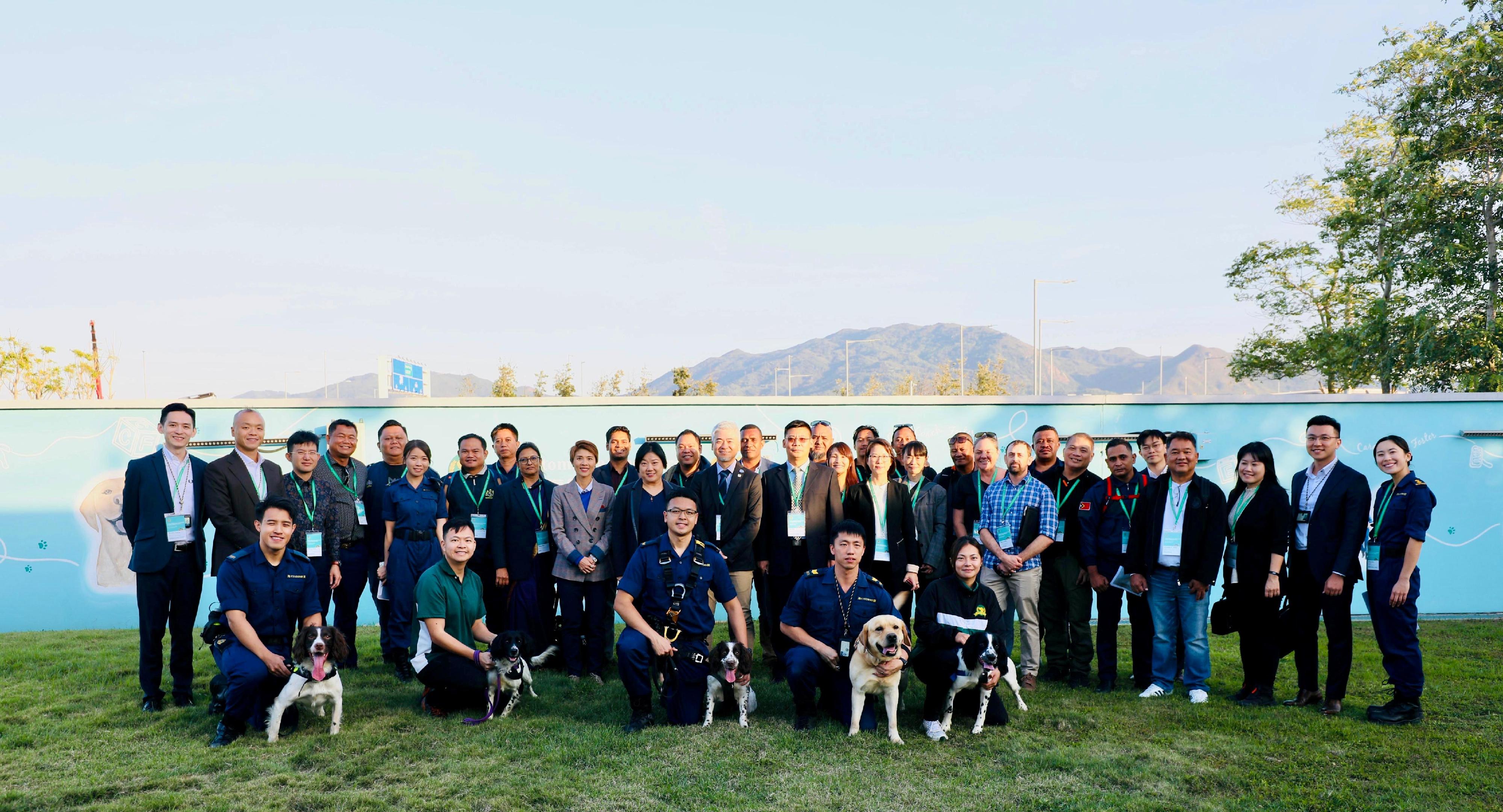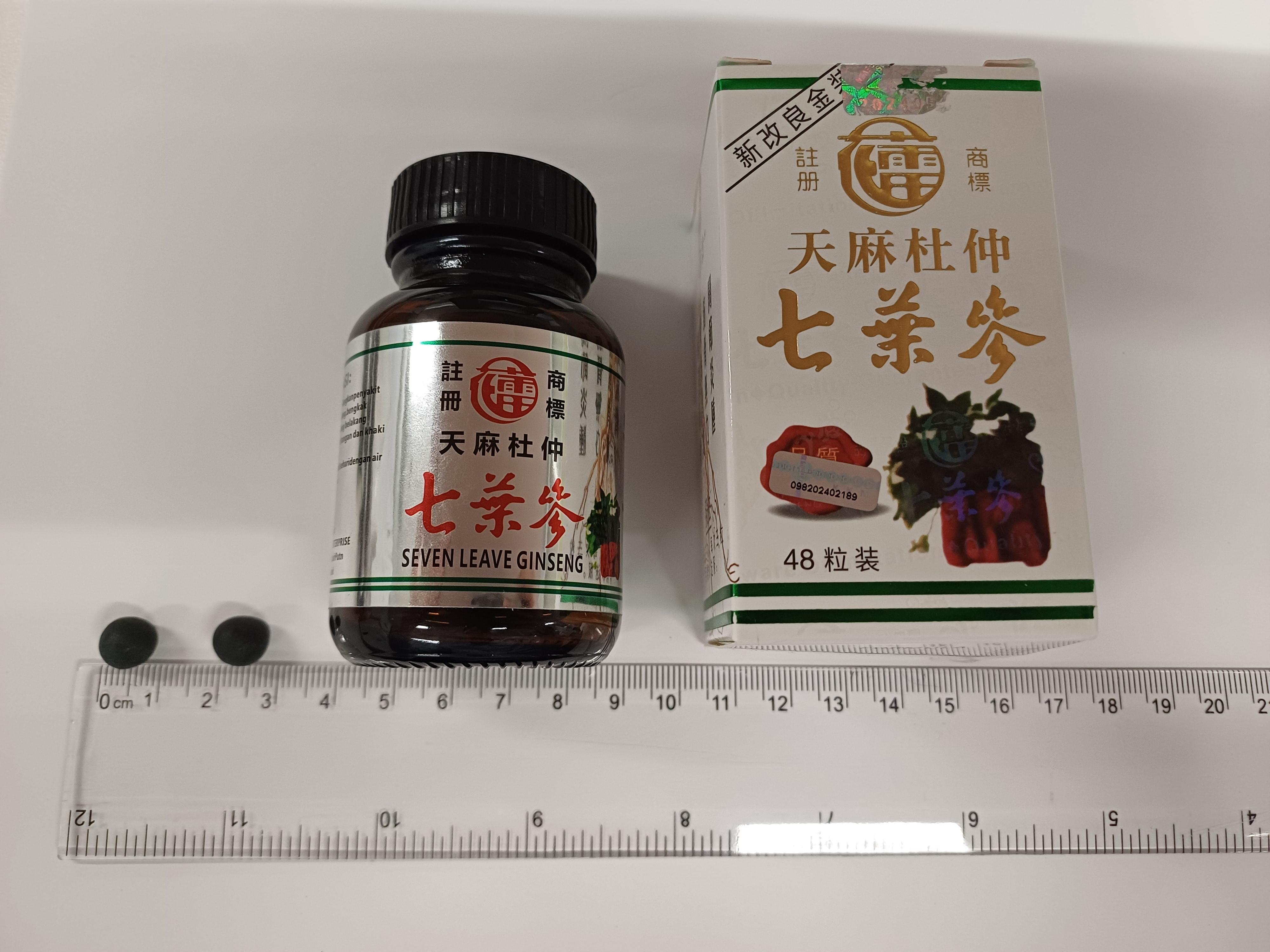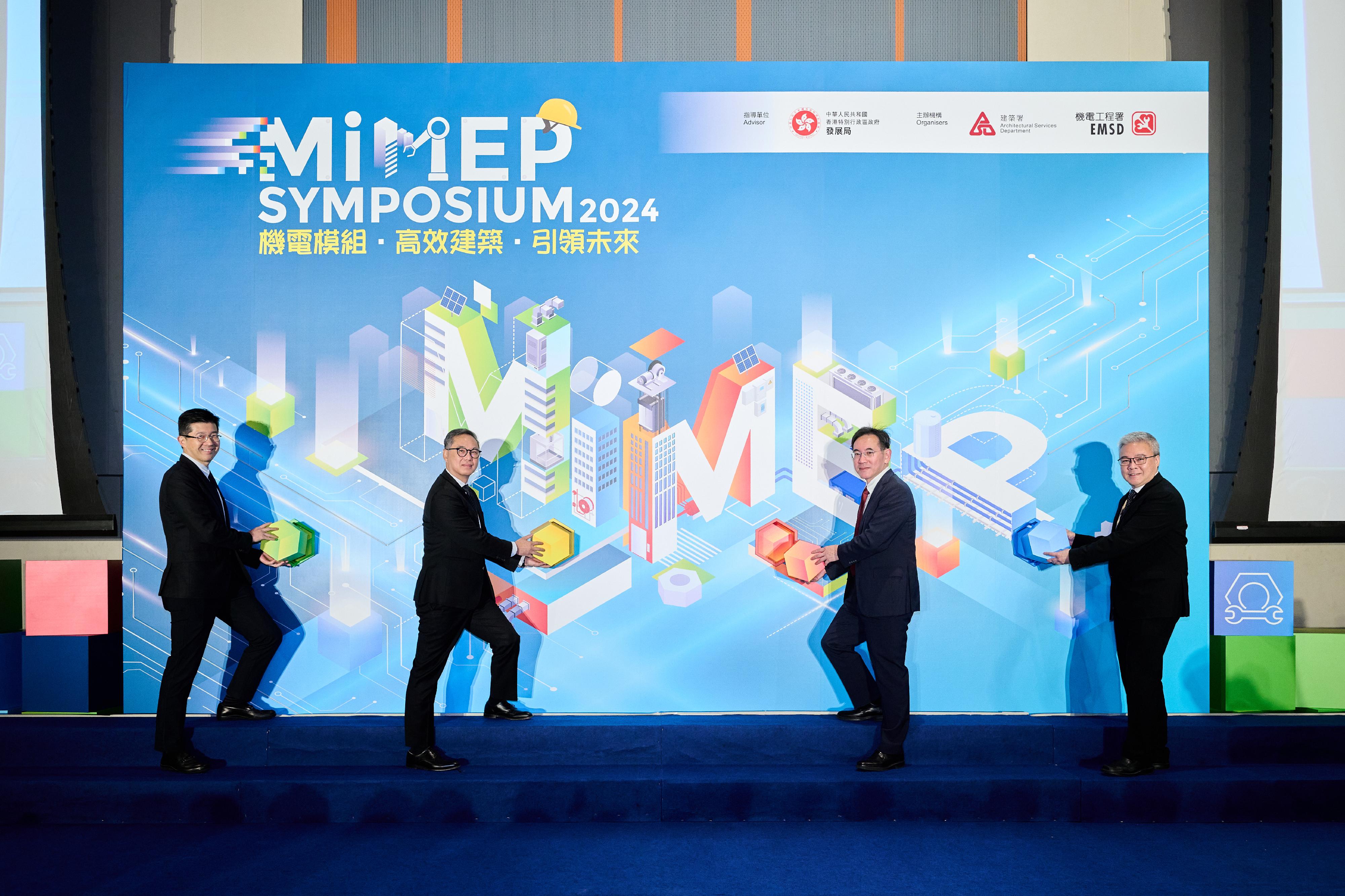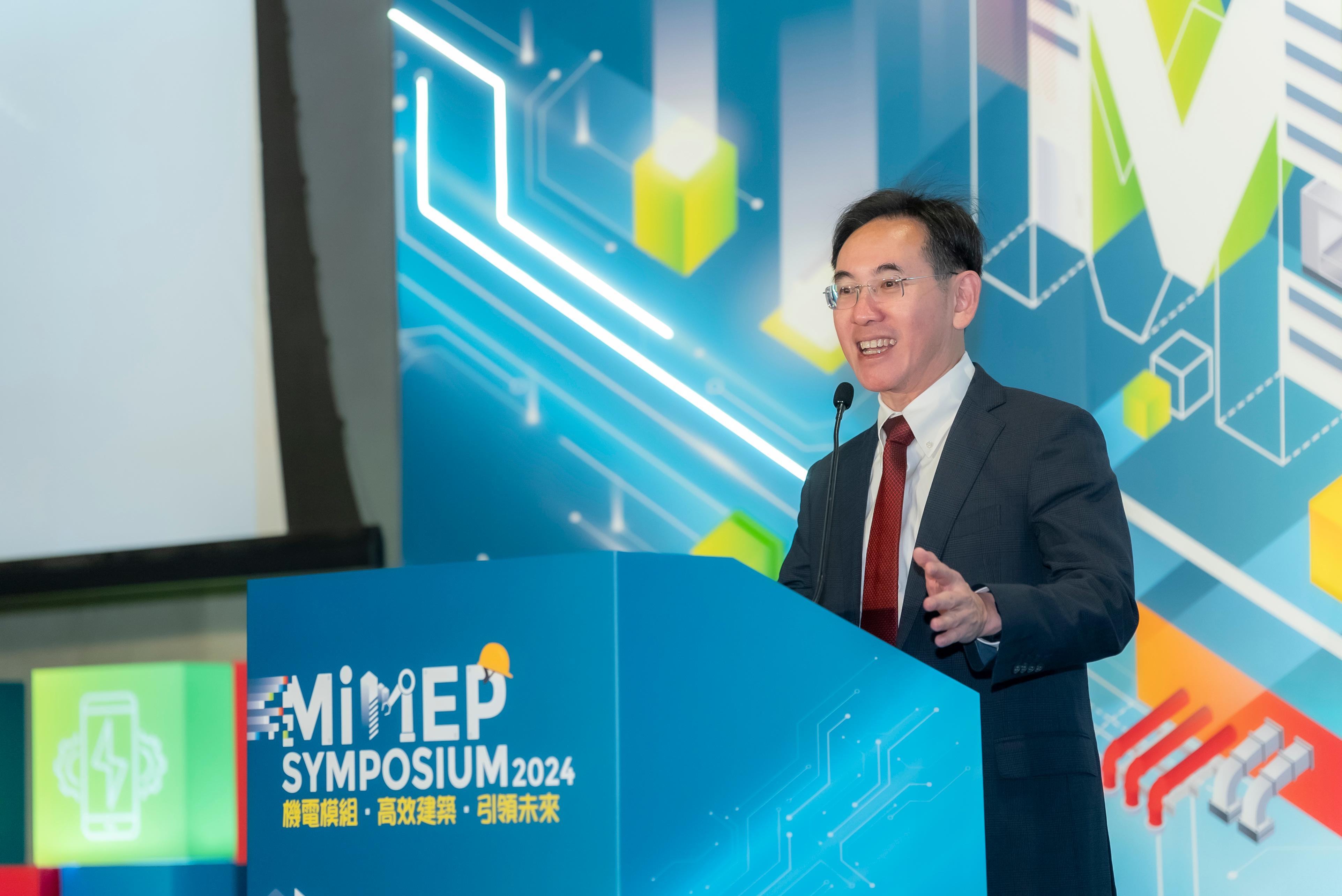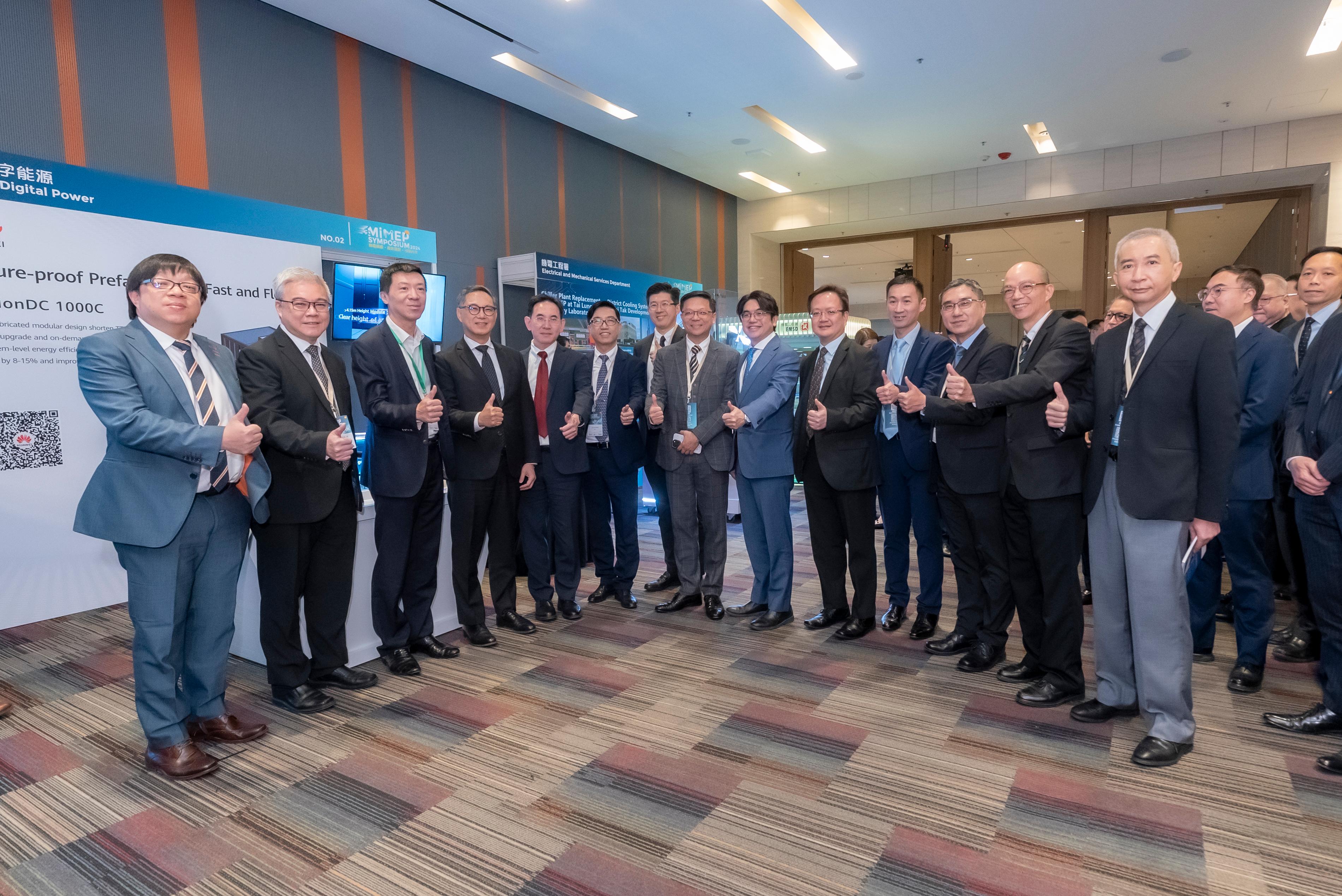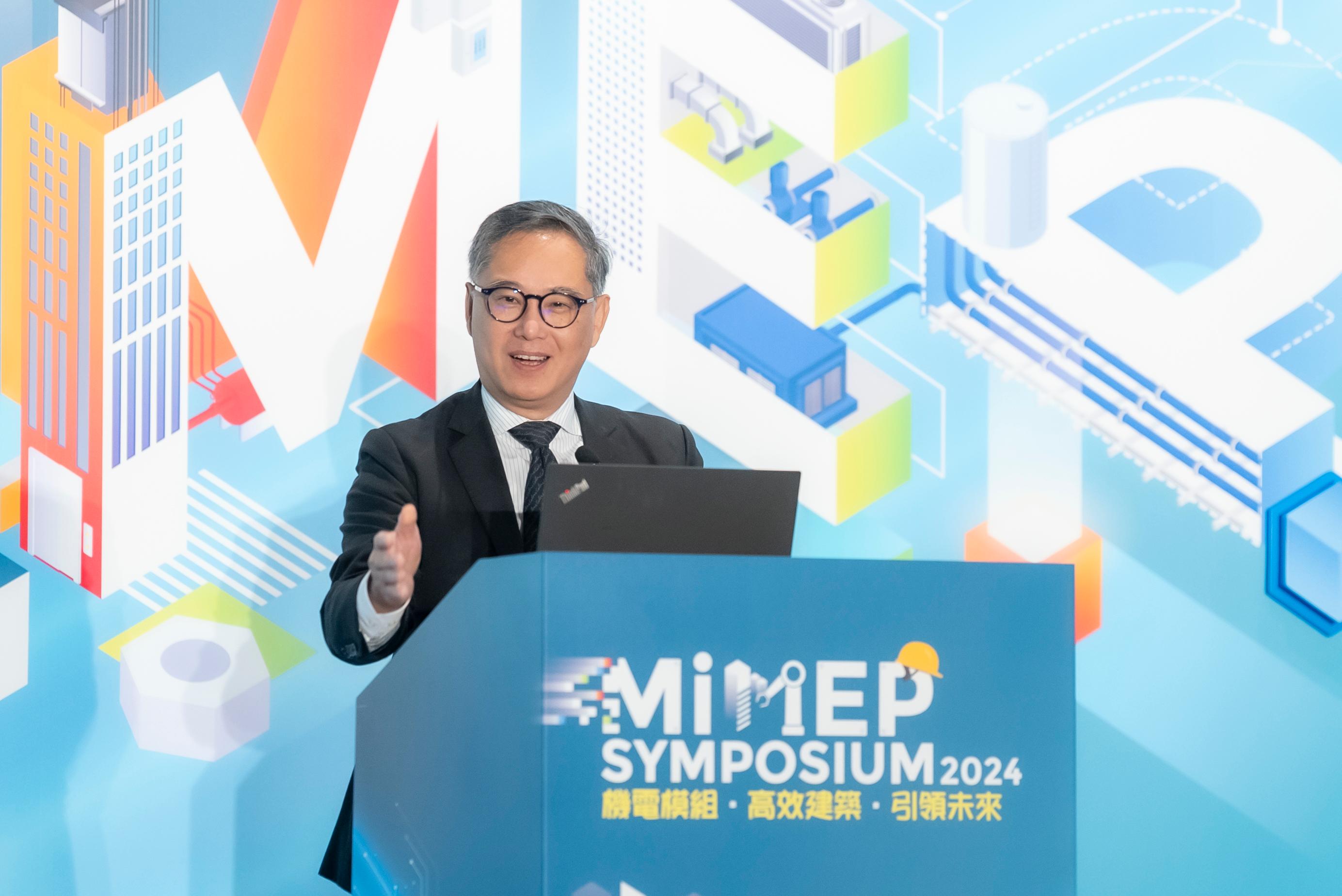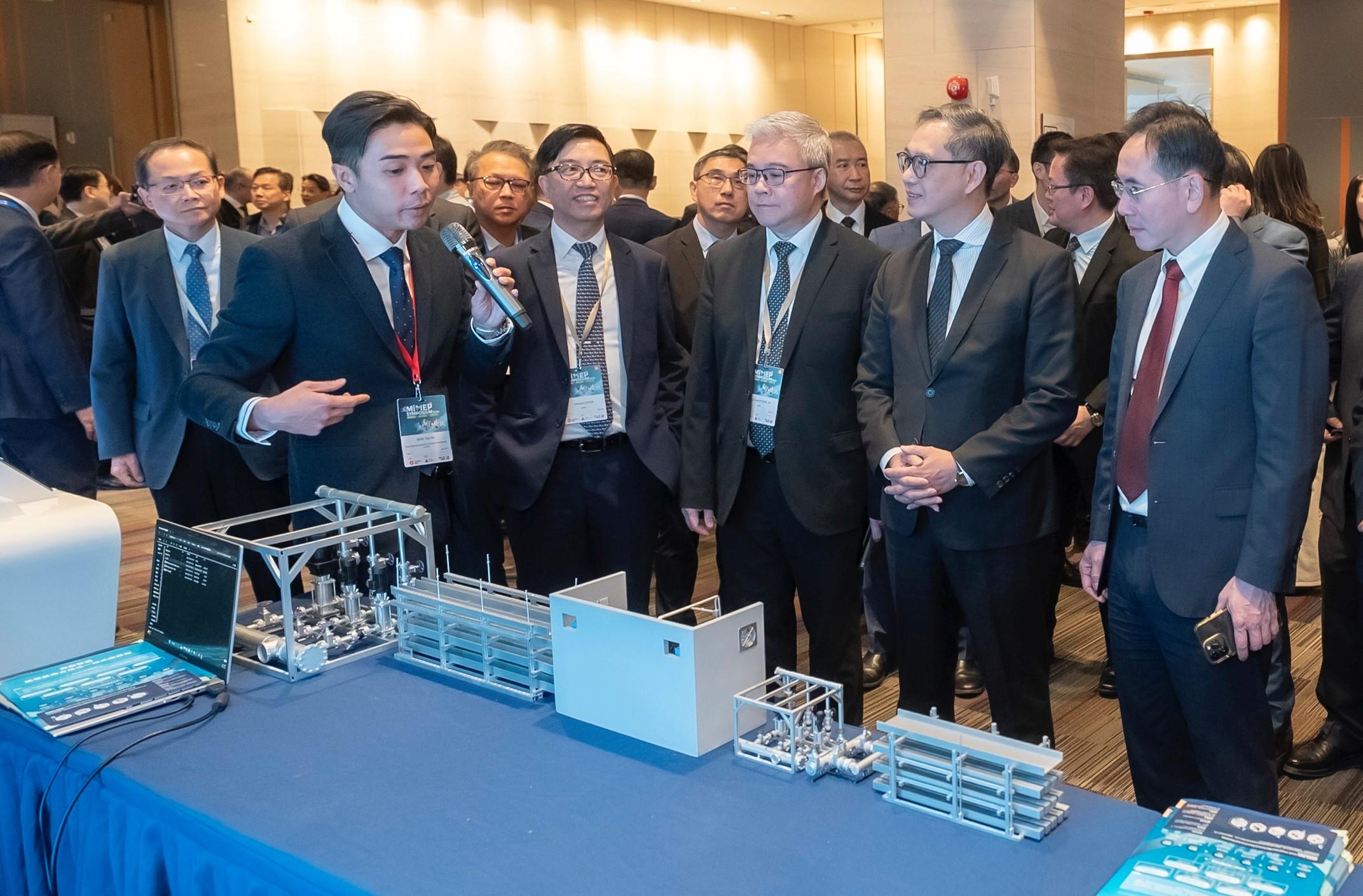Enterprise Participation in Northern Metropolis Development Event held today (with photos/video)
​The Hong Kong Special Administrative Region Government held the Enterprise Participation in Northern Metropolis Development Event today (November 29) to encourage local, Mainland and overseas enterprises to support and participate in the Northern Metropolis development. The Event received guidance from the Hong Kong and Macao Affairs Office of the State Council and was supported by the Liaison Office of the Central People’s Government in the Hong Kong Special Administrative Region (LOCPG).
This morning, the Financial Secretary, Mr Paul Chan, led a delegation of enterprise representatives on a visit to the Hong Kong-Shenzhen Innovation and Technology Park in the Loop and the Hung Shui Kiu/Ha Tsuen New Development Area to understand their latest planning and developments, and to learn about the three large-scale land disposal pilot areas in the Northern Metropolis. The Government will openly invite enterprises next month to express their interest in the three large-scale land disposal pilot projects. The Government will finalise the tender terms after considering feedback from the market.
In the afternoon, the Chief Executive, Mr John Lee, hosted a luncheon at the Central Government Offices for enterprise representatives. This was followed by a signing ceremony attended by over 80 enterprise representatives. Witnessed by Mr Lee and the Director of the LOCPG, Mr Zheng Yanxiong, etc, a Memorandum of Understanding about supporting and participating in the Northern Metropolis development was signed. During the ceremony, 35 of the enterprise representatives also signed agreements among them to collaborate in the Northern Metropolis development, with a total investment of over $100 billion.
Speaking at the signing ceremony, Mr Lee remarked that as a new engine for Hong Kong’s growth, the Northern Metropolis can complement the high-quality integration of Hong Kong with other cities in the Guangdong-Hong Kong-Macao Greater Bay Area, offering quality business opportunities for all. Mr Lee highlighted the Government’s commitment to leading all sectors of the community and the market to participate in expediting the Northern Metropolis development. Mr Lee encouraged enterprises to actively participate in land development and other commercial, innovation and technology industry projects in the Northern Metropolis, including the new large-scale land disposal development approach, thereby delivering the visions of the Northern Metropolis project collectively in creating a bright future.
Representatives of the HKSAR Government attending the Event today also included the Deputy Financial Secretary, Mr Michael Wong; the Secretary for Constitutional and Mainland Affairs, Mr Erick Tsang Kwok-wai; the Secretary for Commerce and Economic Development, Mr Algernon Yau; the Secretary for Health, Professor Lo Chung-mau; the Secretary for Transport and Logistics, Mr Lam Sai-hung; the Secretary for Development, Ms Bernadette Linn; and the Secretary for Innovation, Technology and Industry, Professor Sun Dong.


